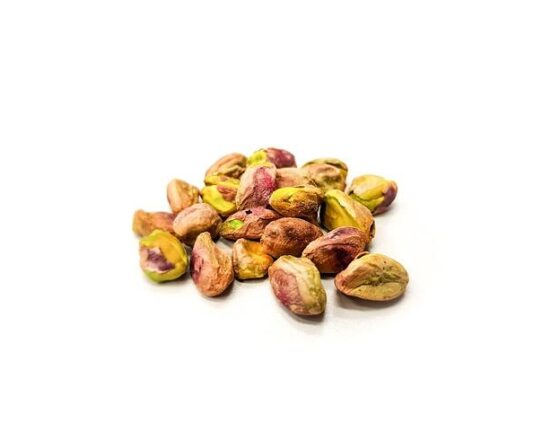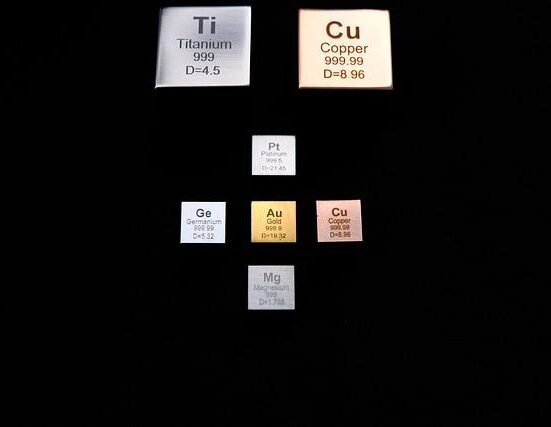In a world increasingly driven by health and wellness trends, the quest for optimal vitality often leads individuals down the winding path of dietary supplements.Among the myriad options saturating the market, specialty supplements like PQQ (pyrroloquinoline Quinone) and CoQ10 (Coenzyme Q10) have carved out their niche, promising a host of benefits ranging from enhanced energy production to improved cognitive function and heart health. But as the allure of these products grows, so too does the need for a discerning look at their true efficacy. Are these supplements a worthy ally in our pursuit of health, or are they simply another drop in the vast ocean of wellness hype? Join us as we delve into the science behind PQQ and CoQ10, exploring the claims, examining the evidence, and uncovering how effective these supplemental powerhouses may truly be.
Understanding the Science Behind PQQ and CoQ10
The exploration of Pyrroloquinoline Quinone (PQQ) and Coenzyme Q10 (CoQ10) reveals captivating insights into their roles as potent antioxidants and cellular energy boosters. PQQ, a novel cofactor, is involved in redox reactions and has been shown to promote mitochondrial function, leading to enhanced energy production at the cellular level. Remarkably, PQQ may stimulate the growth of new mitochondria, providing a meaningful advantage for maintaining cellular health and vigor. Meanwhile, CoQ10 predominantly serves as a critical component in the electron transport chain, a series of reactions that produce adenosine triphosphate (ATP), the primary energy currency of the cell. Both compounds work synergistically to optimize metabolic processes, especially in tissues with high energy demands, such as the heart and brain.
Research indicates that these supplements may provide a range of benefits, including:
- Improved Energy Levels: Both PQQ and CoQ10 are vital for optimal mitochondrial function.
- Enhanced Cognitive Function: Some studies suggest cognitive benefits linked to the antioxidant properties of these supplements.
- Support for Heart Health: Outcomes in cardiovascular health have shown promising evidence when supplemented with CoQ10.
In terms of bioavailability, the effectiveness of both supplements can vary based on individual absorption rates. To provide further clarity, the following table summarizes their key characteristics:
| Characteristic | PQQ | CoQ10 |
|---|---|---|
| Type | Vitamin-like compound | Fat-soluble antioxidant |
| Primary Function | Mitochondrial biogenesis | ATP production |
| source | Plants (fermented soybeans, spinach) | Animal tissues (red meat, fish) |

Evaluating Health Benefits and Potential Risks
When considering the use of specialty supplements like PQQ and CoQ10, it is essential to weigh their health benefits against any potential risks. Both supplements have garnered attention for their roles in promoting cellular health and energy production. PQQ, or pyrroloquinoline quinone, is renowned for its antioxidant properties and its ability to support mitochondrial biogenesis, which can enhance cognitive performance and protect against neurological decline. CoQ10, a naturally occurring antioxidant, is critical in the production of ATP, the energy currency of cells, and has been studied for its potential to support heart health and improve exercise tolerance.
However, while these compounds offer promising benefits, it is crucial to consider potential adverse effects. Some individuals may experience mild side effects such as gastrointestinal discomfort or allergies.Moreover, the interaction of these supplements with medications, especially blood thinners or blood pressure drugs, warrants careful attention. To assist in making informed choices, here’s a quick overview of the benefits and risks associated with both supplements:
| Supplement | Benefits | potential Risks |
|---|---|---|
| PQQ |
|
|
| CoQ10 |
|
|

Choosing the Right Supplement for Your Needs
When it comes to selecting the ideal supplement for individual health needs, it’s essential to consider several factors. PQQ (Pyrroloquinoline quinone) and CoQ10 (Coenzyme Q10) are two popular options, each with unique benefits. Before making a choice, think about your specific health goals, whether it’s boosting energy, enhancing cognitive performance, or improving heart health. Each supplement serves different functions in the body, and understanding these distinctions can help you make a more informed decision.
some key considerations when evaluating these supplements include:
- Purpose: Determine what you want to achieve; PQQ is often linked to mitochondrial support and cellular health, while CoQ10 is known for promoting heart health and energy production.
- Dosage: Look at recommended dosages and potential side effects. Some individuals may need higher doses depending on their health conditions.
- Formulation: Supplements come in various forms such as capsules, powders, or liquids. Choose a form that suits your lifestyle and preferences.
- Quality: Research the brand’s reputation and third-party testing to ensure product quality and effectiveness.
| Supplement | Key Benefits | Recommended Use |
|---|---|---|
| PQQ | Supports mitochondrial function,reduces oxidative stress | Daily for energy and cognitive enhancement |
| CoQ10 | Improves heart health,enhances cellular energy | Recommended for those with heart conditions or fatigue |

Integrating Specialty Supplements into a Balanced Lifestyle
Incorporating specialty supplements like PQQ and CoQ10 into your daily routine can be both effective and enjoyable when done thoughtfully. These supplements can be beneficial in supporting cellular energy production and overall heart health, enhancing a balanced lifestyle that focuses on wellness. Though, it is indeed essential to ensure they complement rather than replace a healthy diet. Consider integrating them into a nutrient-rich plan that includes:
- Whole Foods: Prioritize fruits,vegetables,whole grains,and lean proteins.
- Hydration: Aim for adequate water intake throughout the day.
- Regular Exercise: Combine aerobic and strength-training activities for cardiovascular and muscular health.
- mindfulness Practices: incorporate yoga or meditation for mental well-being.
When considering the addition of supplements, it’s also wise to consult with a healthcare professional who can tailor recommendations based on your individual health needs and goals.Balancing supplements with lifestyle practices fosters a holistic approach to health, emphasizing moderation and personal empowerment. A simple comparative table may highlight their benefits:
| Supplement | Benefits | Food Sources |
|---|---|---|
| PQQ | Supports mitochondrial function and cognitive health | Green tea, fermented foods, natto |
| CoQ10 | Promotes heart health and energy production | Fatty fish, spinach, whole grains |
Insights and Conclusions
the exploration of specialty supplements like PQQ and CoQ10 invites us into a nuanced conversation about health and wellness. While promising research suggests potential benefits for energy production and cognitive function, individual responses to these supplements can vary widely based on factors such as diet, lifestyle, and overall health. As with any addition to your wellness routine, it is indeed essential to approach these supplements with a balanced viewpoint, considering both the scientific evidence and personal health needs. Ultimately, the journey towards optimal well-being is highly individualized, and understanding the role of supplements is just one part of a larger, intricate puzzle. As advancements in nutrition science continue to unfold, keeping an informed and open mind will serve you well on your path to health.















Leave feedback about this